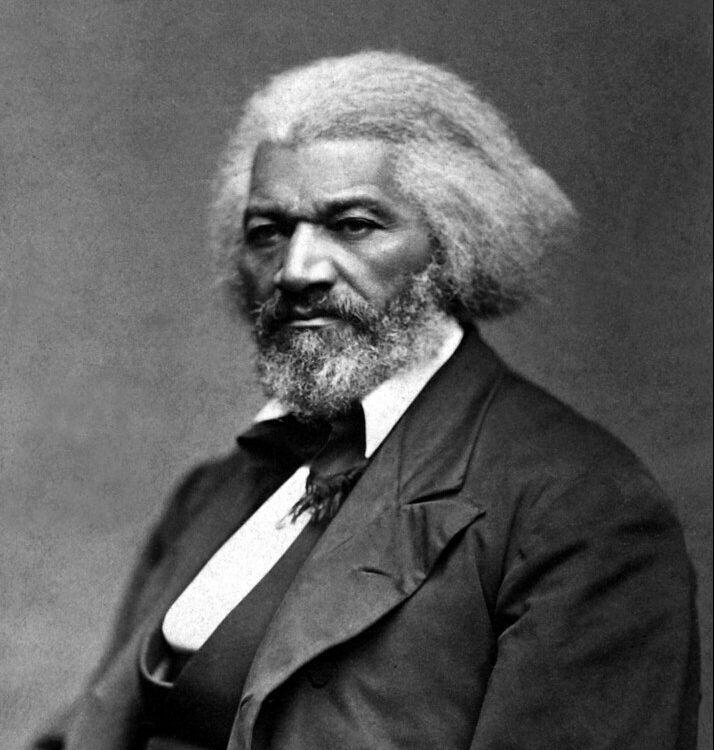Celebrating Resistance: Black History Month
Every February, our nation comes together to celebrate Black History Month. Throughout the month, the United States honors, recognizes, and pays tribute to prominent African-Americans who have made everlasting impacts in history.
The Lancer Ledger took part in the celebration of Black History Month by researching the yearly observance and the triumphs many influential black figures have accomplished. Read below to take part in celebrating this significant month and to honor African-American history that has played a vast role in shaping our nation:
The 2023 Black History Month Theme
The theme for Black History Month 2023 is “Resistance.” African Americans have resisted historic and ongoing oppression from America’s earliest days into the 21st century. There are many forms of black resistance we can witness throughout history; Harriet Tubman and her rescuing of approximately 70 slaves, or more recently, protests against police brutality and their prejudice against people of color. More examples of Black resistance are seen even with historic barbers that fought the status quo by supporting black education and civil rights movements. Black resistance is important because people of color have gone through issues with people trying to diminish them because of their color, but they have always resisted and found their way to fight back and not let people take them down just because of their color.
Ever since Black History Month came about there has been a new theme every year. These themes highlight important parts of African American history and are important since they focus the attention of the public. For example, in the year 2022, the theme was “Black Health and Wellness,” which focused on the legacy of Black scholars and medical practitioners. Going back to 2021, the theme was “The Black Family: Representation, Identity, and Diversity,” which uncovered the beautiful reality of the black family, away from any stereotypes. Themes are so important for Black History Month because they reflect changes in how people of African descent in the United States have viewed themselves, the influence of social movements on racial ideologies, and the aspirations of the black community.
The History Behind Black History Month
In 1915, an alumnus of the University of Chicago, Carter G. Woodson traveled from Washington D.C. to participate in a national celebration, sponsored by the state of Illinois, to recognize the fiftieth anniversary of the emancipation. Carter G. Woodson later founded the Association for the Study of Negro Life and History and Black History Month.
Black History celebrations originally started as a week but it was soon turned into a month since there was so much appreciation and acceptance from black communities. Starting in 1926, Woodson founded Black History Month in order to promote and educate people on black history. The month evolved strongly during the civil rights movements in the 50s and 60s and began to be recognized as Black History Month on college campuses.
Gerald Ford was the first President to officially recognize it as a national celebration, and it has remained that way to this day. Black History Month is also recognized and celebrated as Black History Month in other countries such as Canada and the United Kingdom.
Honoring Historical Black Figures
From past to present, there is no denying that black figures have helped to, and continue to, shape our nation with their great accomplishments. The Lancer Ledger wanted to honor some of these influential black figures and their ground-breaking triumphs.
Kamala Harris

Kamala Harris has worked every step of the way to become an accredited and prominent figure of Black History Month, as well as in our country. Currently the vice president, Harris is the first South Asian American vice president; as well as the first woman. She has broken boundaries within our government and exceeded the barriers that challenge women and black people everyday. Additionally, Harris was also the first woman to serve as California’s attorney general from 2011-2016. Harris has worked not only to make a name for herself, but help to make a difference for many others. In December, Harris hired the “first all women senior staff for the U.S. Vice President’s office.” Harris has persevered through the many barriers of politics and the workforce, serving as a role model for anyone who thinks they are not able to pursue their dreams.
Harriet Tubman

Harriet Tubman was a woman born around 1820 into a life of slavery. She was a person who sought justice, even as a young child, and eventually escaped the clutches of slavery as a result of the Underground Railroad, which was a beacon of hope for many enslaved people who desired to reach freedom. Harriet soon thereafter became one of the conductors for the Underground Railroad and helped several others escape slavery, even throughout the 1850 Fugitive Slave Act. It was believed that she led at least 70 enslaved people to freedom.
Rosalind Brewer
As the CEO of the top brand company, Walgreens, Rosalind Brewer is a figure who deserves to be honored this month. She is the only black woman who has led a Fortune 500 firm and the third black woman in history to serve as a Fortune 500 CEO. Despite her successes, Rosalind has dealt with many harsh, racial comments suggesting that she can not have the job she has worked so hard to achieve. During her 2018 speech at her alma mater, at Spelman College, Rosalind stated, “When you’re a black woman, you get mistaken a lot…Sometimes people assume you’re in the wrong place, and all I can think in the back of my head is, No, you’re in the wrong place.” Rosalind’s confidence shows other black women that they can stand up to the inequality and accomplish whatever goals they wish to achieve. Rosalind is honorable, determined, and most of all, an inspiration.
Frederick Douglass

Frederick Douglass was an American abolitionist who escaped from slavery in New York in 1831, and later settled in New Bedford, Massachusetts. He became a national leader for Massachusetts and New York, becoming famous for his speeches against slavery. One of many ways Douglass pushed for an end to slavery was by posting through his own newspaper, The North Star, and by working with William Lloyd Garrison, and his paper, The Liberator. Douglass’ autobiography, Narrative of the Life of Frederick Douglass, an American Slave, tells his impactful story, and is still taught in classes today.
Did You Know That…
- The founder of the Association for the Study of African American Life and History, Carter G. Woodson felt that black children were not being taught about their history and the achievements of their ancestors back in the early 1900’s.
- Black History Week was originally the second week of February to coincide with Abraham Lincoln and Frederick Douglass birthdays.
- 10,000 people protested before Black History Month was created, arguing that a week wasn’t sufficient for the amount of adversity they had faced. Protesters were successful in getting what they rightfully deserved. In 1970, Black History Week was transformed into Black History Month and now is celebrated throughout the entire month of February.
- The first school was created in 1635, but the first African American school wasn’t created until 1770. Black History Month is now celebrated in schools throughout the country, including LRHS. Throughout the month, the ERASE Club decorates parts of the school with black history facts and includes them in the announcements.
Though Black History Month may be coming to a close, recognizing the adversities African-Americans have had to overcome and commemorating the contributions black figures have brought to our nation will continue to be celebrated all year long. The month helps to serve as a reminder to continue the fight for racial justice and equality nationwide.












